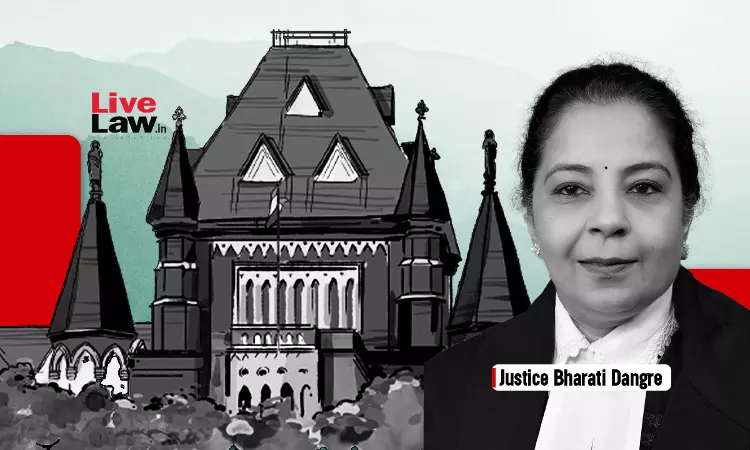- Home
- /
- High Courts
- /
- Bombay High Court
- /
- Appointment Of Arbitrators From A...
Appointment Of Arbitrators From A Narrow Panel Of 4 Arbitrators Is Violative Of Section 12(5) Of The A&C Act: Bombay High Court
Ausaf Ayyub
20 April 2024 7:22 AM GMT
The High Court of Bombay has held that appointment of arbitrator from a narrow panel of 4 arbitrators is violative of Section 12(5) of the A&C Act. It held that such practice of preparing narrow panels restricts free choice and give rise to suspicion that favourites are chosen. The bench of Justice Bharati Dangre held that independence and impartiality of arbitrators is a hallmark...
The High Court of Bombay has held that appointment of arbitrator from a narrow panel of 4 arbitrators is violative of Section 12(5) of the A&C Act. It held that such practice of preparing narrow panels restricts free choice and give rise to suspicion that favourites are chosen.
The bench of Justice Bharati Dangre held that independence and impartiality of arbitrators is a hallmark of arbitration and the rule against bias is one of the fundamental principles of natural justice, which is applicable with equal force in all quasi-judicial proceedings.
Facts
The parties entered into an agreement dated 02.01.2020 wherein the petitioner was selected as the contractor for mechanised and manual cleaning and house keeping of 13 railway stations of the respondent.
A dispute arose between the parties regarding payments due to the petitioner under the agreement. Resultantly, the respondent invoked the arbitration clause under the agreement seeking appointment of the arbitrator. The respondent insisted on the appointment of the arbitrator as per the agreement. Upon the failure of the parties to mutually agree on the appointment, the petitioner approached the High Court under Section 11(6) of the Act.
Submissions by the Parties
The petitioner made the following submissions:
- The appointment procedure provided under the agreement is invalid as it provides for appointment from a narrow panel of arbitrator.
- The procedure is also invalid as the General Manager of the Respondent cannot act as an appointing authority.
- The appointment procedure is also invalid as the respondent is permitted to appoint 2/3rd of the arbitral tribunal and the nomination by the petitioner is subject to confirmation by the respondent.
- The judgment in CORE has been referred to a larger bench pursuant to disagreement by two coordinate benches of the Apex Court.
The respondent made the following counter-submissions:
- The appointment procedure is upheld by the Supreme Court in CORE judgment wherein the Court has approved an identical appointment procedure.
- The Apex Court in Voestalpine has also held that there is no prohibition in law on the appointment of retired government employees as arbitrators since they bring in technical expertise with them.
Analysis by the Court
The Court observed that the clause provided for appointment of a 3 member arbitral tribunal out of a panel of 4 names maintained by the respondent. It observed that out of the 4 names, the petitioner is to choose 3 names and out of those names, the respondent would appoint one person as the petitioner's nominee. Further, the remaining two arbitrators including the presiding arbitrator is to be appointed by the respondent only.
The Court held that appointment of arbitrator from a narrow panel of 4 arbitrators is violative of Section 12(5) of the A&C Act. It held that such practice of preparing narrow panels restricts free choice and give rise to suspicion that favourites are chosen.
The Court relied upon the judgment of the Apex Court in Voestalpine to hold that a panel unilaterally prepared by a party must be broad and diverse to avoid any possible conflict with Section 12(5).
The Court held that independence and impartiality of arbitrators is a hallmark of arbitration and the rule against bias is one of the fundamental principles of natural justice, which is applicable with equal force in all quasi-judicial proceedings
Further, the Court held that power of General Manager of Employer to confirm nomination of arbitrator by the Contractor runs contrary to principles of impartiality and independence.
Accordingly, the Court allowed the petition and appointed a sole independent arbitrator.
Case Title: N.P. Enterprises v. General Manager, Western Railway – Commercial Arbitration Application No. 30940 of 2023
Date: 18.04.2024
Counsel for the Petitioner: Mr.Dhananjay Deshmukh with Mr.N. Qureshi and Mr.Dushyant Krishnan
Click Here To Read/Download Judgment


